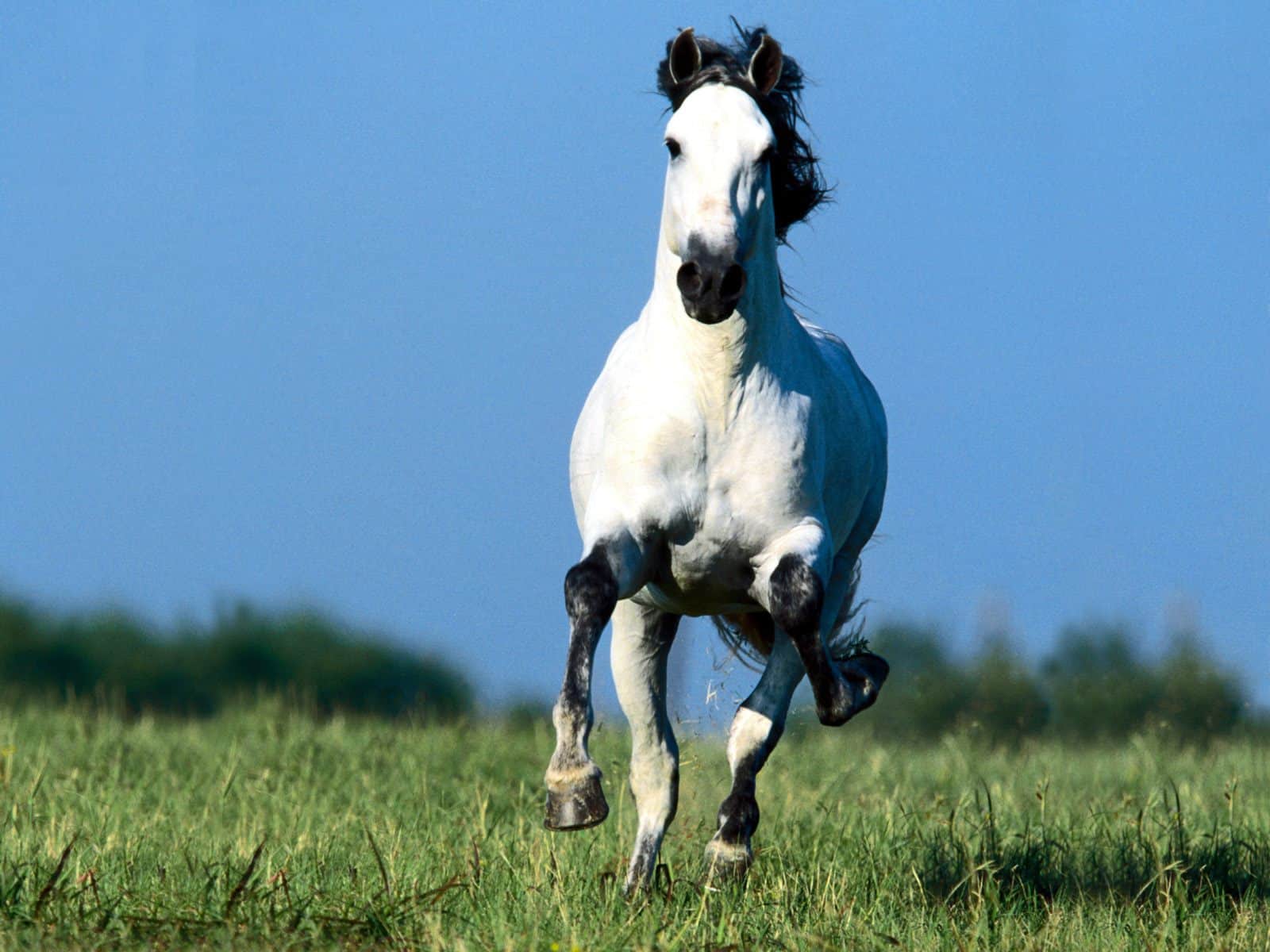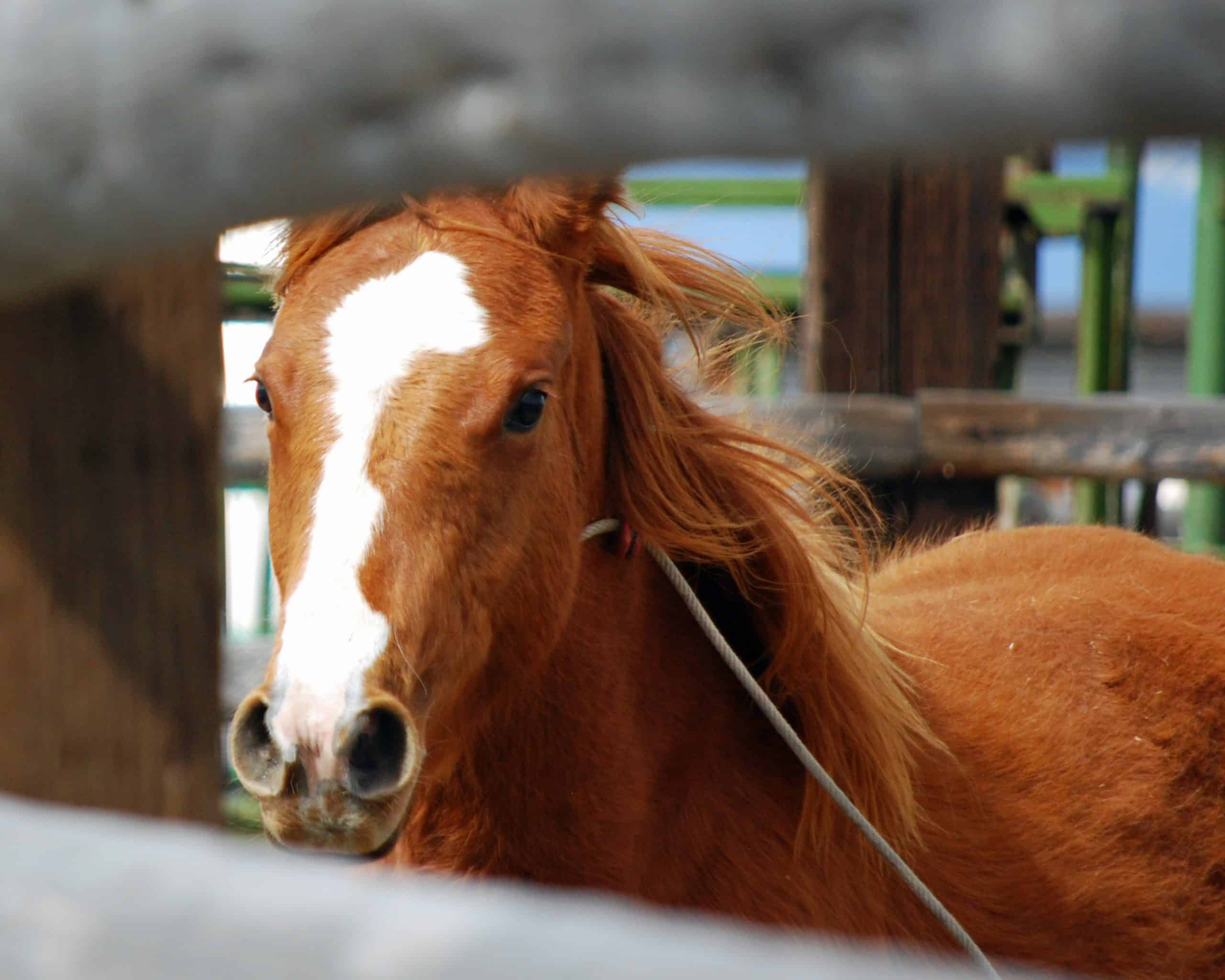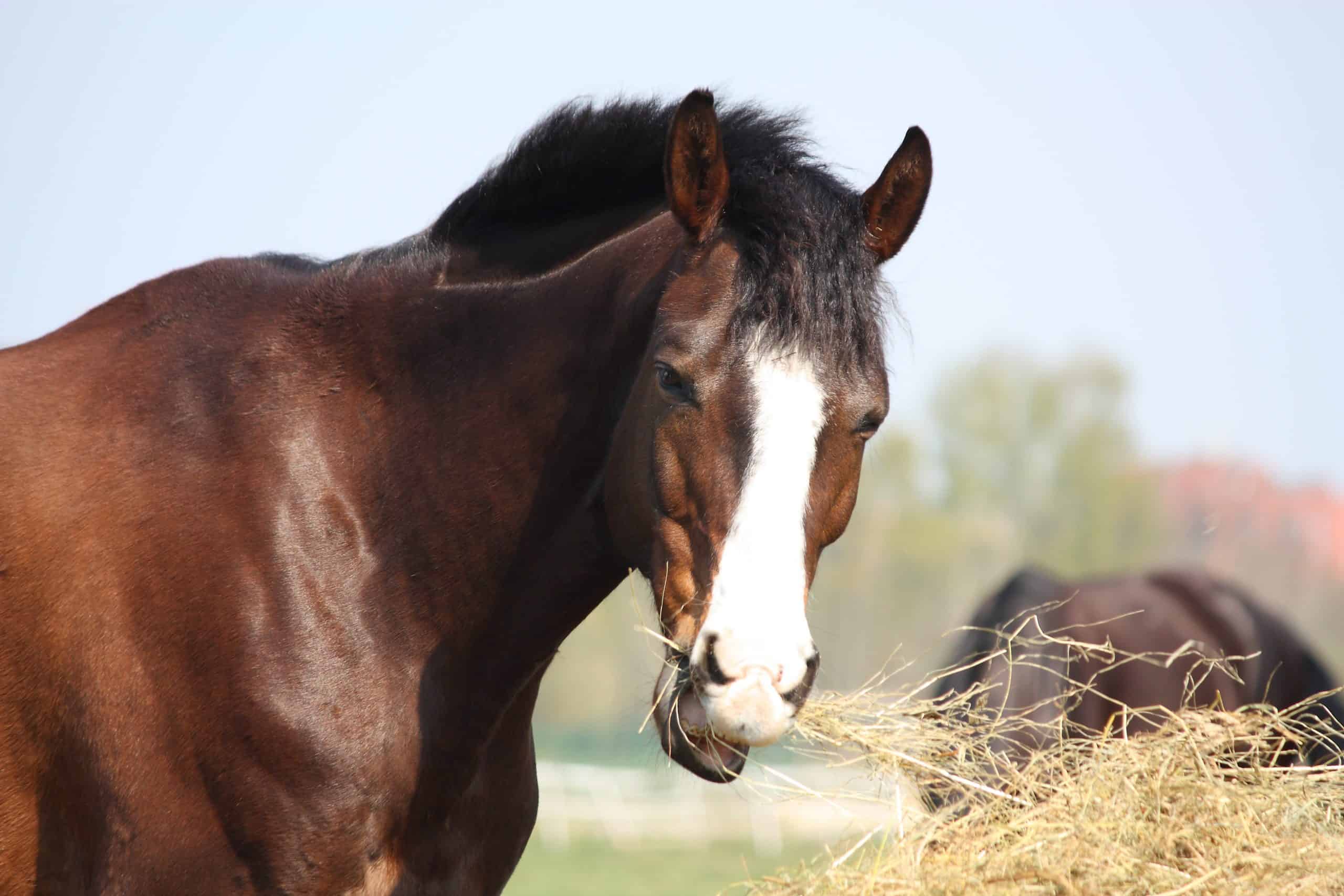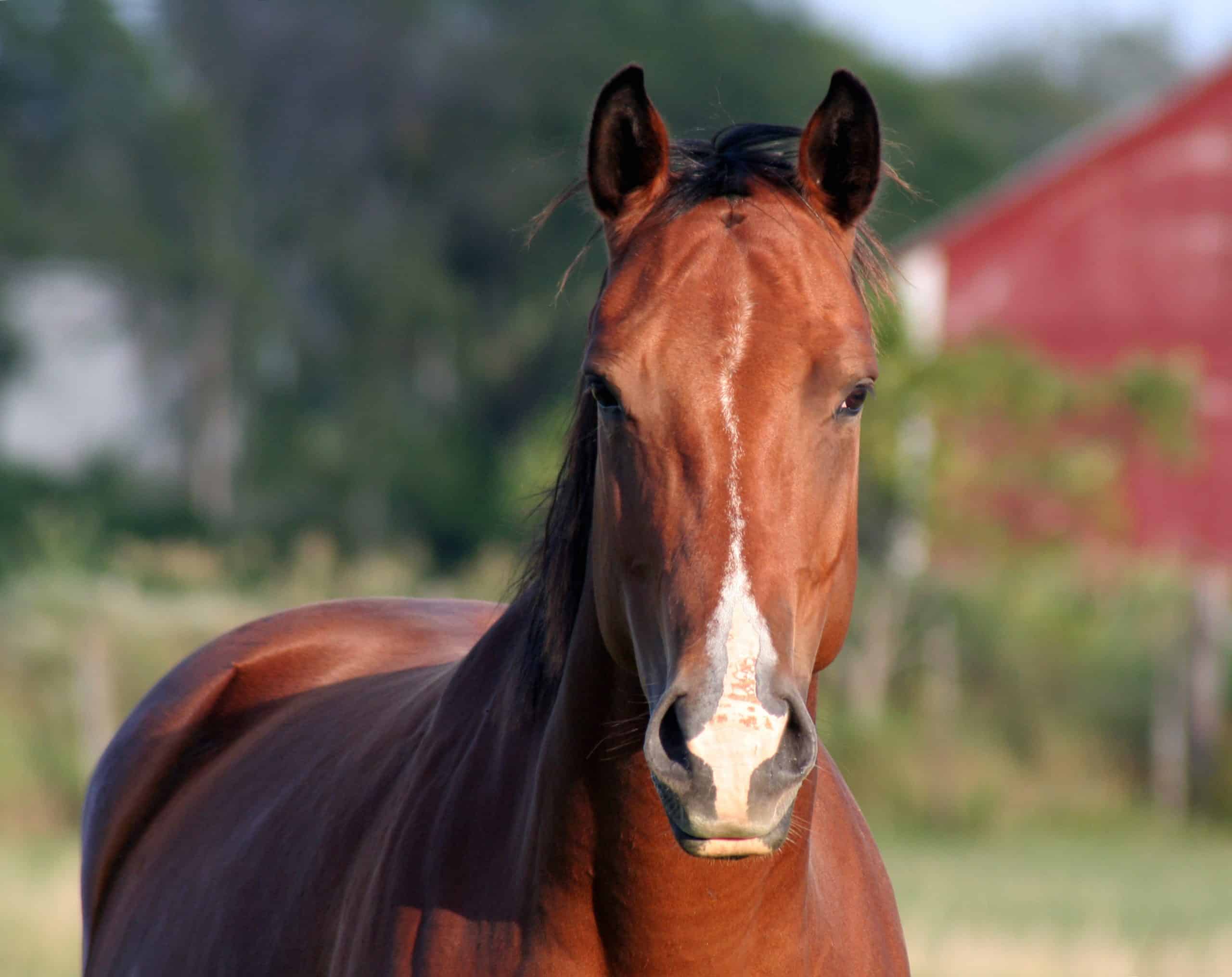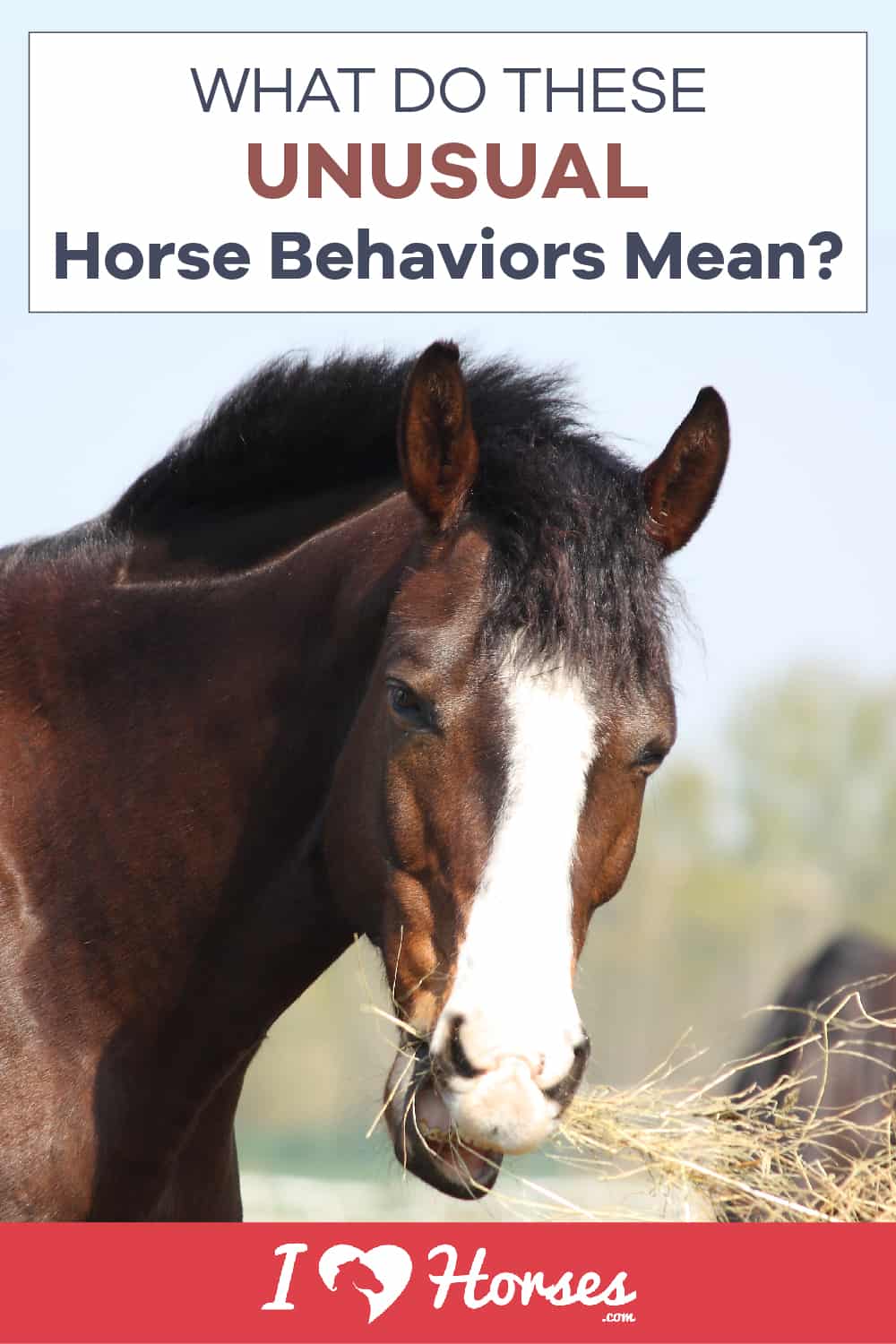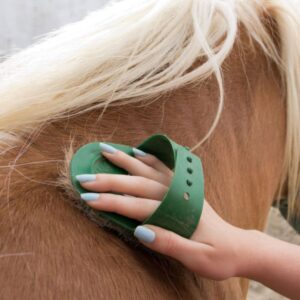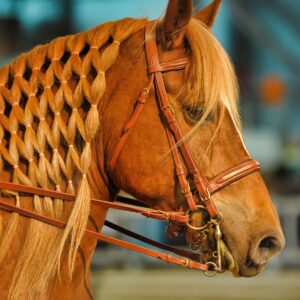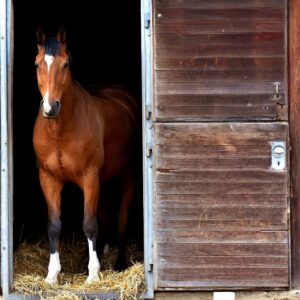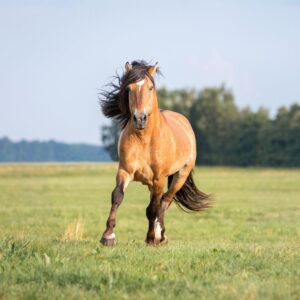Of course, every horse has its own unique personality, but their behavior can often tell you if they are in pain, not feeling well, if they’re happy… or if they’re not. Although your horse can’t speak up and tell you what he’s thinking or how he’s feeling, he can communicate with you in other ways. If you know what to look for, their behavior and body language can actually tell you a whole lot.
1. Unusual Aggression
Certain types of aggression are not unusual in horses, especially in a herd setting. They will often play rough, kicking, chasing, and even nipping at their pasture mates. Aggressive behaviors usually come with warning signs, like flattened ears, snorting, or quick tail movements. However, aggression can also signal a problem, and it’s up to you as a horse owner to determine if your horse is just being a horse, or if he’s being unusually aggressive.
For example, a horse who has been confined may become aggressive towards people. Remember, horses are social animals. They want to be outdoors with other horses, relaxing and grazing. If they’re kept confined, they often become frustrated and may lash out at other animals or at people.
Horses can also display aggression out of fear. If the horse is new to you, he may have suffered mistreatment at some point in his past. Night blindness could also cause a horse to be aggressive out of fear, especially if he’s confined in a dark stall.
Unfortunately, horses can also be aggressive if they’re trying to be dominant toward other horses. This can be a dangerous situation for handlers and other horses. Dominant horses require skilled handlers and should be treated with caution.
Experts at Bond Vet Animal Hospital say that unusual aggression can also be a signal that an animal is in pain or isn’t feeling well. If your normally sweet horse suddenly nips at you when you touch a certain area, it’s worth investigating to ensure there’s not an underlying issue that’s been overlooked.
Strange Eating Habits
Strange eating habits in horses can indicate anything from boredom and anxiety to a health issue. Here are some horse behaviors to watch out for and what they might mean.
- Wood chewing: Wood chewing could indicate inadequate roughage in your horse’s diet. Horses who have free access to pasture graze for up to 14 hours a day. But a horse who’s confined in a stall only munches on hay for a few hours a day, at most. Wood chewing is most common in horses who are fed mostly pellets and are bored due to prolonged confinement and lack of exercise. This problem can become severe. If you notice it, you should provide more roughage and take steps to prevent boredom.
- Coprophagia: Coprophagia, or eating feces, can be a problem in foals at around two months old and often declines as they get older. It may indicate a lack of nutrients, so it’s a good idea to consult with your vet for advice.
- Pica: Pica is a condition where an animal eats things that aren’t food, such as dirt. This behavior can lead to digestive issues, so it should not be ignored. It could also indicate boredom or a lack of roughage or nutrients. Provide additional roughage, exercise, and a salt/mineral block to see if the condition improves and talk to your vet for further advice.
- Lack of appetite: Horses are sensitive, social creatures. They may stop eating if they’re separated from a companion or handler. It can also signal illness. Consult your vet if your horse is refusing to eat because his condition could decline quickly.
3. Phobias
It’s not uncommon for horses to develop phobias to real and imaginary threats. However, phobias can turn to panic quickly, which can be dangerous for the horse and his handler. Many horses become fearful when adapting to changes in their environment, and this is completely normal. However, if your horse’s fear is exaggerated, it can become an issue.
Never punish a horse for being fearful because that will only make the problem worse. It’s much better to remove whatever is causing the fear or take steps to desensitize the horse. For example, if your horse is afraid of a certain sound, record it, and play it at a low volume while soothing him with petting, soft words, and treats. Over time, increase the volume slowly to desensitize him to the sound.
Overcoming fears and phobias in horses requires patience and diligence.
Wrap Up
Horses are wonderful companions, but you need to know which behaviors are normal and which ones indicate a behavior or health issue. Due to their size, an aggressive or fearful horse can be dangerous, so you should always pay attention to your horse’s body language. Anytime your horse is behaving strangely, it’s a good idea to consult with your vet, even if it’s just for your own peace of mind.
Do you have any other horse behavior tips to share? Let us know in the comments below!
Horse Courses by Elaine Heney
- Listening to the Horse - The Documentary by Elaine Heney & Grey Pony Films
- Shoulder In & Out Training for better balance, bend & topline development with your horse
- Over 110+ Polework Exercises & Challenges to Download
- Dancing at Liberty & Creating Connection with Your Horse (11 lessons) - Grey Pony Films
About the Author

